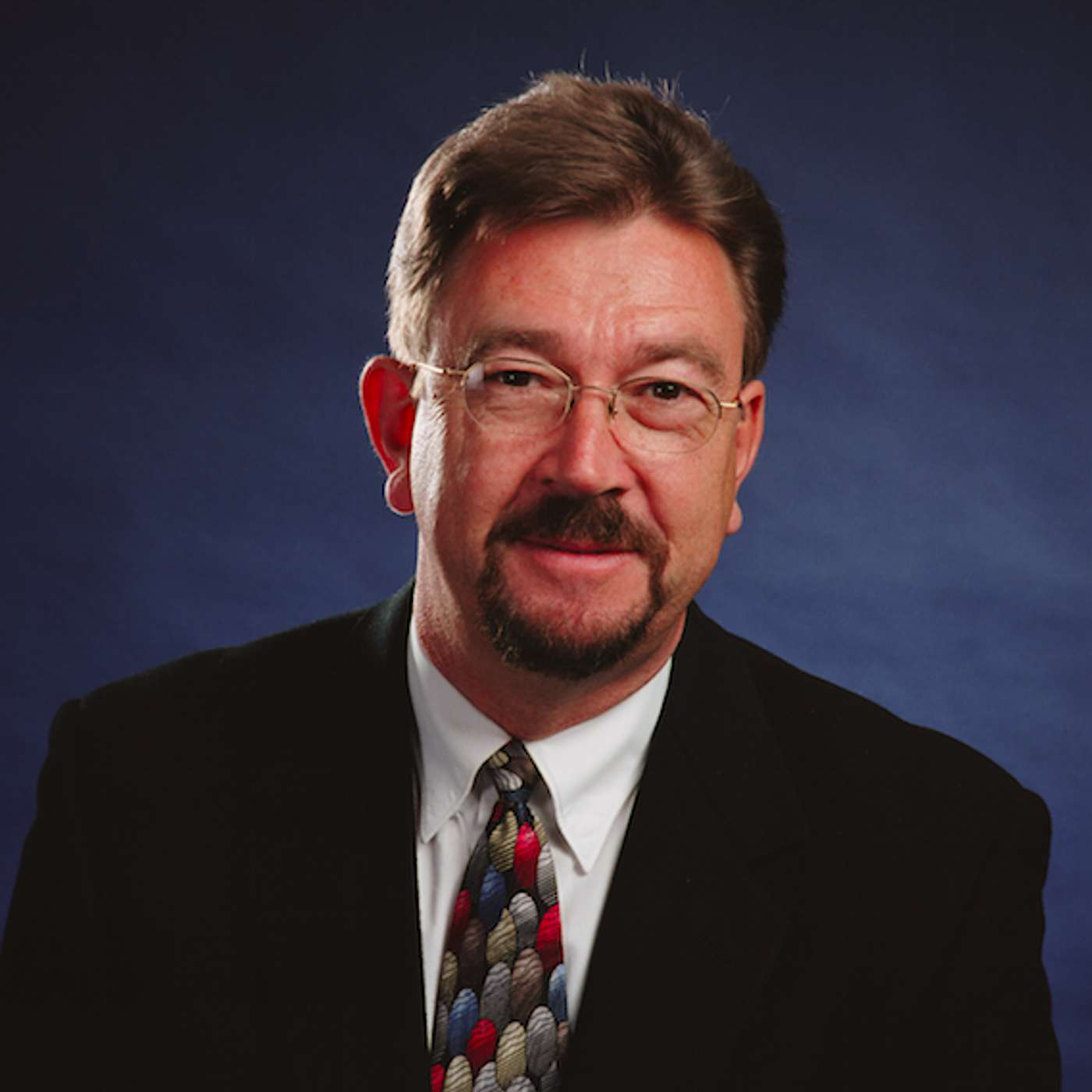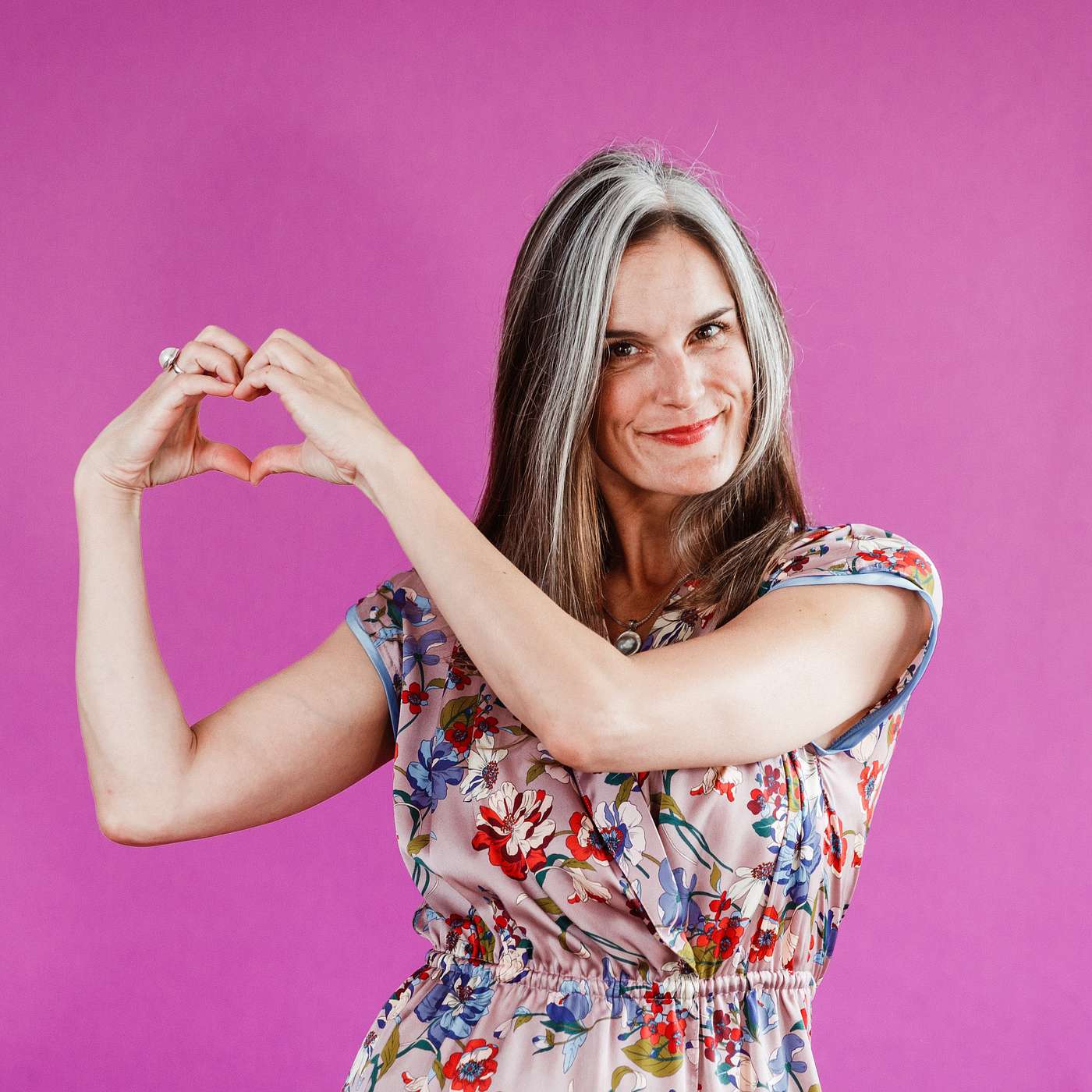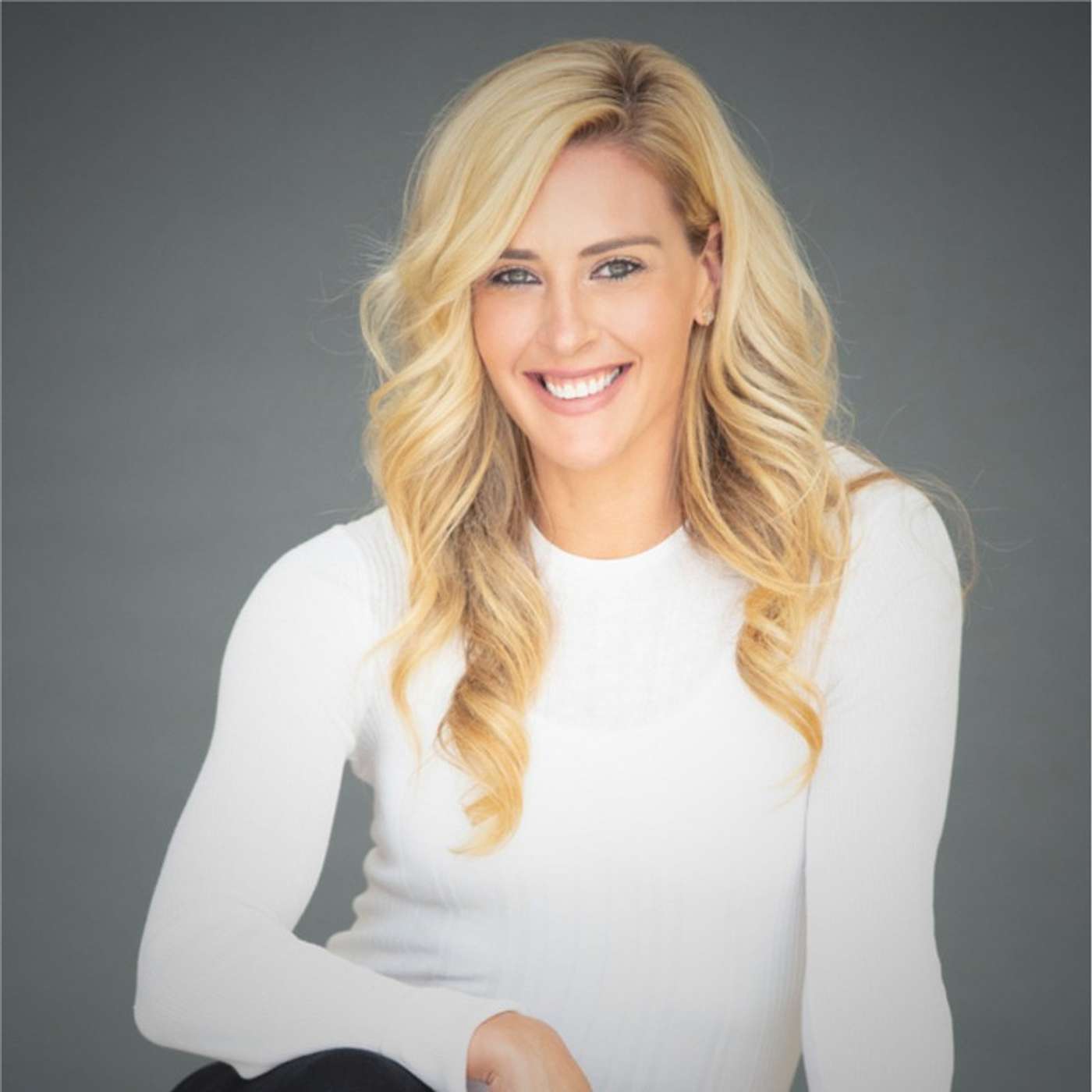Advice Column
How to Endure Difficult Emotions
Running from uncomfortable feelings? Discover how others learned to process difficult emotions in a healthy way.
Welcome to the Advice Column community! Here we share our personal stories to accelerate one another's growth. In each episode, we discuss a common life challenge, and several people share their experiences dealing with that issue. You'll gather ideas and insights while finding encouragement that others have felt like you do. We're better when we're together, and we're so glad you're here!
________________________________________________________________________________
Connect With Our Panelists!
James newton, Owner, Newton Learning Corporation:
Jessica Zemple, Life Shucker:
Mary Rice:
Heather Moyer, CEO, HNM Systems, Inc:
Lisa Liguori (Host):
Advice Column Podcast:
- Website: https://advicecolumn.com/
- Instagram: @advicecolumnpod ( https://www.instagram.com/advicecolumnpod/ )
- Twitter: @AdviceCPod ( https://twitter.com/AdviceCPod )
- Facebook: https://www.facebook.com/TheAdviceColumnPodcast
- YouTube: https://www.youtube.com/channel/UChYmoafMFOeL7HCNWrXPkJQ
- LinkedIn: https://www.linkedin.com/company/advice-column
Running from uncomfortable feelings? Discover how others learned to process difficult emotions in a healthy way.
Welcome to the Advice Column community! Here we share our personal stories to accelerate one another's growth. In each episode, we discuss a common life challenge, and several people share their experiences dealing with that issue. You'll gather ideas and insights while finding encouragement that others have felt like you do. We're better when we're together, and we're so glad you're here!
________________________________________________________________________________
Connect With Our Panelists!
James newton, Owner, Newton Learning Corporation:
Jessica Zemple, Life Shucker:
Mary Rice:
Heather Moyer, CEO, HNM Systems, Inc:
Lisa Liguori (Host):
Advice Column Podcast:
- Website: https://advicecolumn.com/
- Instagram: @advicecolumnpod ( https://www.instagram.com/advicecolumnpod/ )
- Twitter: @AdviceCPod ( https://twitter.com/AdviceCPod )
- Facebook: https://www.facebook.com/TheAdviceColumnPodcast
- YouTube: https://www.youtube.com/channel/UChYmoafMFOeL7HCNWrXPkJQ
- LinkedIn: https://www.linkedin.com/company/advice-column
Mary Rice: Sex, gambling, food, workaholism.
Jessica Zemple: So many things happened because I wasn't addressing my emotions.
James Newton: When I drank I clearly escaped.
Jessica Zemple: You can't run from who you are.
Lisa Liguori:
Hello, friend, welcome to advice column where you hear real people's real life experiences. So you can leverage multiple lives worth of learning to accelerate your own personal growth. What do you do when you feel mad, sad, stressed, any kind of discomfort. I don't know what to do with myself. When I feel upset. I get restless and agitated. And I don't think I've ever really learned how to self soothe or endure feelings that are unpleasant. Some wise people have shared with that a healthy response to those times and might be to quote unquote, sit with the emotions and experience them. But I don't know what that even means or looks like practically speaking, some piece of the puzzle is missing in my mind when it comes to grasping this. So in this episode, I'm asking our panelists to share how they learn to process uncomfortable emotions in a healthy way. Let's listen in now to what they can share.
James Newton:
I'm James Newton. I've had a lot of loss in my life. My most traumatic life experience happened when I was eight, you're going down the highway, my mother's driving big old black sedan where the rear doors open away from the center column. And Robbie, three years younger than me, he's standing with his hands on the back of the seat looking over my mother shoulder, and my mother says Robbie, sit down. And when he went to sit down, he grabbed the door handle instead of the armrest and the door just snapped open and out. He went at 60 miles an hour. I have this picture in my head of reaching for him, and he is there one second and he's gone. I think a part of me decided that I was to blame. The biggest thing that I have run from is my own shame. And it's the hardest thing for me to be honest about. I think there was an underlying loneliness I lived with for an enormous amount of my life. When I drank, I drank alone, and I clearly escaped. When I started doing deep personal growth work, I really attached myself to mentors, which was a primary way of learning and I've had some awesome, awesome teachers. I think learning how to truly forgive was the key to the healing and recovery. Usually what we're running from is something we have not taken the time to be forgiving of. So I think we've stopped being afraid when we understand forgiveness. When we look to something external, which escapism is inevitably that looking for something external, because we're not finding what we need in that place inside. I think a lot of depression comes not from what we find inside but the resistance to going inside. In two weeks, I will have reached 13 years of sobriety. I see the things that are upsetting as All right, what is it that I'm here to learn and trusting that. So I've tend to go deeper into those things as opposed to run from them.
Jessica Zemple:
I think right now there's this campaign about positivity, and we should turn everything that's hard into something positive, trying to bypass that feeling and go to the other side. My dad is diagnosed schizophrenic, and that manifested through anger, a lot of upset. Because of that I started to become very afraid of anger, one because it felt dangerous. And then two, I was worried anytime I would experience anger that I too was schizophrenic. And what that did is it made me try to suppress those emotions. So I actually had migraines as a child and I fully suspect that's because I was trying to stuff everything into that little body of mind and trying to control all these feelings that really needed to move through me. In the past. I did a lot of suppression and I also did a lot of running away when life felt hard. I would go travel the world and it's no different than somebody who's an alcoholic or Shopaholic, mine was travel a Holic I was traveling to escape my reality. And I actually realize through the process that you can't run from who you are. Everyone has a different way of coping with feelings. And I don't think we're taught as young children how to really soothe ourselves and to handle emotions in a healthy way. So what I think we need to do is really support people in helping them understand what they're feeling and healthy ways to move through them going forward. As I've grown, I've started to realize that emotions are not good or bad. And really, they're a compass for us. If I am feeling anger, I want to understand why is there something I need to be doing differently in my life, because that anger feeling is there, and it's directing me in a new way, is the jealousy showing me that I should be going for something different. I once experienced a lot of jealousy of a friend that wrote a book, and I always had a book in my heart. And when that experience happened, I knew it was time for me to write my book because of the feeling. So instead of rejecting the feelings and numbing them out, I have now started to try to tune into them and really use them as my guide. There's so many cool techniques, it could be eating better, it could be meditation, it could be movement, it could be exercise, it could be journaling, I have a ton of different journaling techniques that I use to try to move through different emotions. I really tapped into community, I had my go to people to really ask for support and love and the days that I didn't feel strong enough to do it on my own. I have found that the more honest I am, and the more authentic I am earlier about something, it dissolves the emotion that may have built up in the past.
Mary Rice:
Because I wasn't able to love myself, it came with constantly comparing myself to other people needing validation from other people, keeping myself separate from other people, perfectionism, that was unattainable. I could escape from me with alcohol. I went through a treatment program. And all I did for 30 days was I got up and made my bed and learned about myself. Not the roles I played. And I was really good at playing roles. I'd been good at playing the good student, The good daughter to good wife, but I hadn't ever explored who I was. I got to know me for the first time during those 30 days, and realized by the time I left that I liked me. Now I had no idea what unconditional love was. That's what I spent the first year of my sobriety, learning how to unconditionally love myself, I became more and more accepting. I put sticky notes on my mirrors. It's okay to be me. You don't have to improve today. Your body is fine just the way it is. And it was just a process of accepting who I was. Recovery gave me the gift not all at once. But over time of understanding what unconditional love was. And learning to love myself allowed me to love other people and conditionally accept them for who they were the biggest gifts in my life have been learning that I was an alcoholic and getting brain cancer. I've grown more from those two things than anything else.
Heather Moyer:
I am Heather Moyer. I am a president and CEO of HNM systems. I'm a wife, a mom, a philanthropist and upfront. We have so much going on in our busy lives. And we go all day we're doing doing doing and then we stop at the end of the day, and we're left with ourselves. So we're just in our own being and these emotions start to come up. And sometimes exploring those emotions can be very uncomfortable. I've found myself slipping back into this pre pandemic rhythm of overdoing and being disconnected from myself. And it's really difficult to feel this emotion deeply. And so I'm just going to go ahead and pour this big glass of wine and disconnect from this feeling. Meditation is a huge practice for me and I find that in quiet I hear my soul and I had this kind of quiet whispering of my inner knowing And it was just telling me I was totally out of alignment. I was taking action mindlessly. And that's something that just doesn't serve me in my life, I recognize that, hey, I think I'm probably taking away from myself more than giving to myself. So I just decided that for October, instead of pouring myself a big glass of wine, I was going to go ahead and sit with that feeling and explore it, welcome it, give it a hug, and get to know it. And so I just thought it would be a neat journey that was in no way a punishment, it was not a judgment. It was a nourishment. And so I had made this commitment that I would give to myself first to give to others best. And so this was just a practice of that. And it's for me to be a better wife, a better leader, a better mom, a better friend. So I called our coach, then I called one of my very best friends and convinced her to join me in the journey, and really just decided to make this a fun, exciting adventure. Initially, what I found was, when I was coming home from work or closing down for the day, I had created a ritual for myself of pouring this glass of wine. So I took kombucha, and I poured myself a big glass of kombucha in my beautiful wine glass. And I enjoyed it sat by the fire and just really leaned into it, I would feel myself experiencing emotion, experiencing stress or experiencing frustration. And I would just welcome the feelings and get really curious about them. And in the past, I would just shove those emotions away. And after letting myself process those things, I'm able to now move on, where those things used to linger for me for months, maybe even years, things that I had left unresolved. And now I'm at a time in my life, where I'm able to acknowledge, hey, this is a human emotion, and I'm experiencing it. And it's kind of interesting to watch it pass through my body and pass through my mind and sober October really helped me to identify that I had the strength and knowledge, mindfulness and intelligence to do that for myself every day.
Lisa Liguori:
Hi, again, friend, that is a lot for me to reflect on. What's your biggest takeaway from what you heard? One of the things that struck me was the connection, a couple of people mentioned between self love or a lack of self love, and a feeling of needing to escape. I don't quite understand it. But I think there's something interesting there for me to reflect more on. I also heard someone mentioned that recovery is at some level about returning to ourselves, I heard a bit of a theme that self care, forgiveness and self acceptance are somehow related to this capacity to endure difficult feelings. And I was encouraged by the idea of starting small by maybe naming an emotion that I'm feeling and then being accepting that I feel that way. I also loved the idea of thinking about emotions, as teachers that are there to let me know something like that I might need to make a change in my life. This whole thing just feels like a really new and big territory to me. And I think I'm just at the beginning of working on growing in this area. I hope hearing our panelists experiences helped you feel freer to feel your emotions, and may help you develop that capacity to be comfortable being uncomfortable that people talked about. I want to thank our guests for sharing their deeply personal experiences to help us learn. We always link up their contact information in the show notes if you would like to learn more about these beautiful people. And I also want to say a special thank you to my parents for their generosity in establishing the nonprofit 501 C three which provides for the creation of this podcast. And thank you for being on this journey with me. It enriches my experience and I'm grateful to you. Until next time, I'm sending you lots of love


